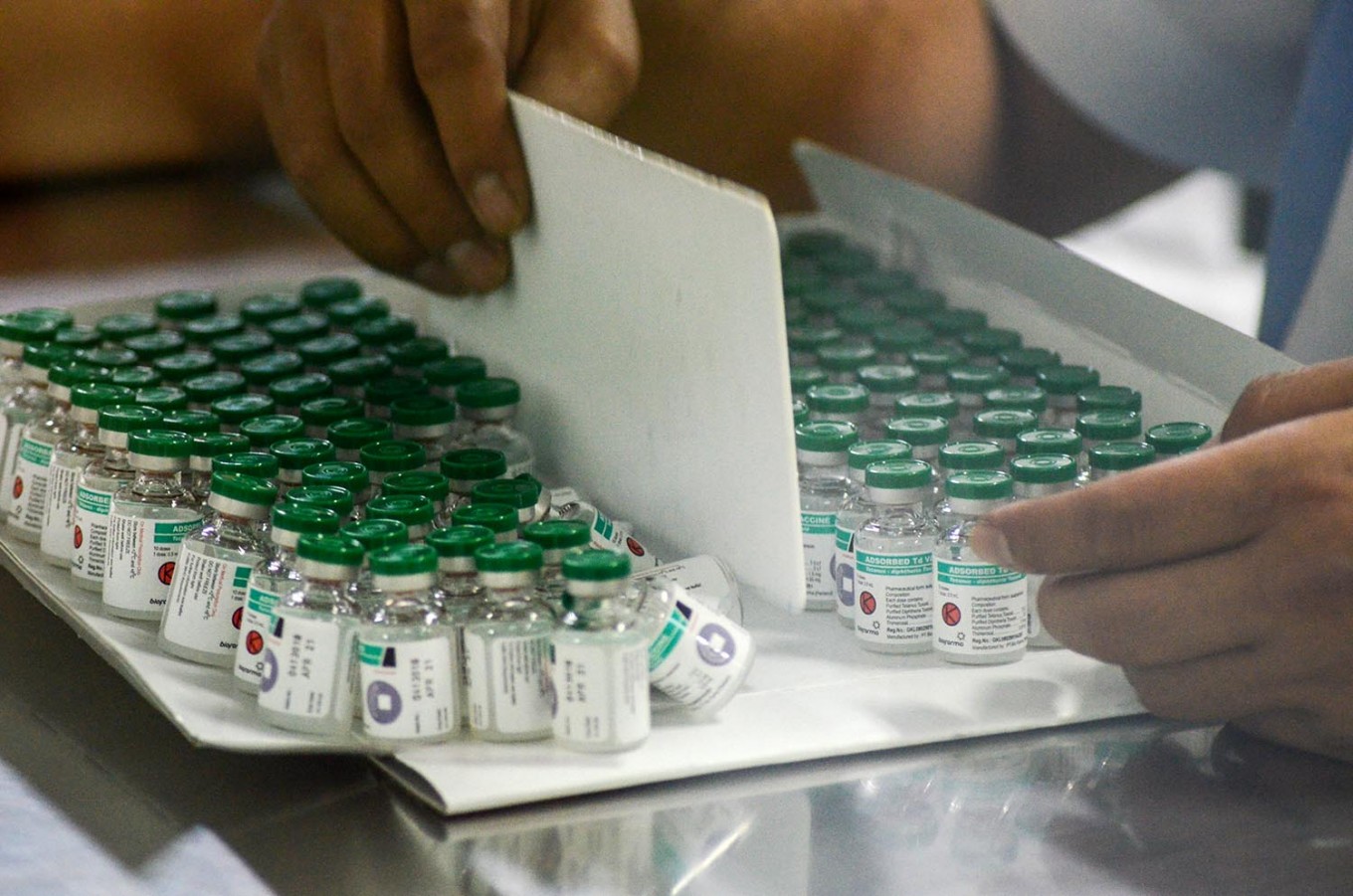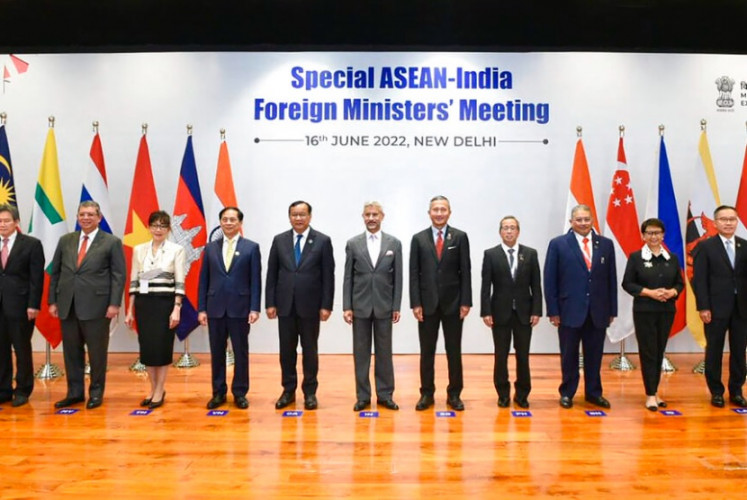Commentary: Ending measles, rubella by 2020
Can Indonesia achieve its targets of eliminating measles and controlling rubella by 2020?
Change Size
 A worker arranges vials of a vaccine at the laboratory of state-owned pharmaceutical company PT Bio Farma in Bandung, West Java. (Antara/Raisan Al Farisi)
A worker arranges vials of a vaccine at the laboratory of state-owned pharmaceutical company PT Bio Farma in Bandung, West Java. (Antara/Raisan Al Farisi)
T
he backlash against measles and rubella (MR) vaccinations may put more children at risk of being infected by these two deadly viral diseases. Parental concerns about the halal status of vaccines have not only slowed the progress of the government’s mass MR immunization campaign but also triggered doubt: Can Indonesia achieve its targets of eliminating measles and controlling rubella by 2020?
At issue is that the MR vaccine used in the campaign has been declared haram by the Indonesian Ulema Council (MUI) because the product uses porcine-based gelatin. Although the MUI said the vaccine was mubah (permitted for use by Muslims), given the absence of a halal vaccine, many parents across the country still refuse to vaccinate their children, citing their Islamic beliefs.
As of Sept. 16, MR immunization coverage in 28 provinces was at 47.37 percent, far below the target of 75 percent, according to the Health Ministry.
Indonesia’s fight against measles and rubella is inseparable from the 2010 global commitment of the World Health Assembly (WHA) to reduce the number of deaths by 95 percent by 2015.
However, South and East Asia is still heavily burdened by the very contagious diseases. In 2011, over 70,000 children died of measles in that region, accounting for around 45 percent of global measles deaths. This prompted the assembly’s 11 member countries to convey to the World Health Organization (WHO) their commitment to eliminate measles and control rubella and congenital rubella syndrome by 2020.
To that end, Indonesia launched the MR immunization campaign, which targets around 70 percent of the population and comprises two stages, one each in 2017 and 2018. Conducted in six provinces across Java from August to September last year, the first stage managed to reach 35 million children aged 9 months to 15 years, exceeding the national target of 95 percent. In the second stage of the campaign this year, around 32 million children in 28 provinces outside Java are expected to receive the vaccine, with a coverage target of 95 percent.
With only two weeks left to complete the campaign, immunization coverage is still way too low. Coverage in seven of the provinces is at barely 40 percent. From December 2017 to March 2018, measles affected 651 children in Asmat, Papua, and killed 75 in a population that was impacted by widespread malnutrition.
If the MR vaccination campaign fails, millions of children aged between 9 months and 15 years will be left unprotected. “Inpatient treatments for measles at hospitals and deaths caused by the disease may continuously increase while […] many more babies will be born with congenital rubella syndrome,” said Arifianto Apin, a pediatrician and member of a task force that handles epidemics at the Indonesian Pediatric Society (IDAI).
Without communal immunity, these highly contagious diseases and potential epidemics would continue to spread, threatening efforts to eliminate measles and control rubella by 2020, Arifianto warned.
An obvious misunderstanding of MUI Edict No. 33/2018 on the use of the MR vaccine produced by the Serum Institute of India (SII) has posed a key challenge in the second stage of the MR mass immunization. Not all MUI branches across the 28 provinces are willing to obey the fatwa issued on Aug. 20.
For Muslims in Aceh, the vaccine’s mubah status has not convinced parents. Acting governor Nova Iriansyah even announced last week that his administration had decided to postpone the immunization drive until the Aceh Ulemas Consultative Assembly decides whether the vaccination is halal. As of Sept. 16, only 7.01 percent of the 1.54 million targeted children in Aceh have been vaccinated, making it the province with the lowest rate of MR immunization coverage, followed by Riau (22.52 percent) and West Sumatra (24.25 percent). We should therefore applaud West Papua, where immunization coverage has exceeded 95 percent.
The current polemics would not have happened had the government acted swiftly to respond to public concerns on the halal status of vaccines. During the first stage of MR immunization last year, the MUI reminded the Health Ministry to immediately file a halal vaccine certification request with the council’s Food, Drugs and Cosmetics Assessment Institute (LPPOM). But as of July this year, no such request has been submitted.
Worse, in the face of mounting pressure on the halal certification, the ministry stated the MR vaccination was optional, particularly for those without religious concerns. Meanwhile, Muslims rejecting the MR vaccination for their children, unless the vaccine is declared halal, can wait until a fatwa on a halal vaccine is announced.
By allowing vaccinations to be optional, the government has acted irresponsibly — the minimum coverage target of 95 percent of the country’s children is required to achieve herd immunity.
Today, the use of haram substances such as porcine-derived trypsin is largely inevitable as only certain media can be used to cultivate a virus. This is why Muslim authorities must be involved in vaccine manufacturing from the very beginning, as it is important that they understand the entire process.
The MUI must coordinate with all its branches to align perceptions about the MR vaccination. Otherwise, parents and local and national authorities will have to share the blame for the exposure of up to 32 million Indonesian children to measles and rubella and the dangerous and potentially fatal consequences — not to mention the 2020 global target to end the diseases.









